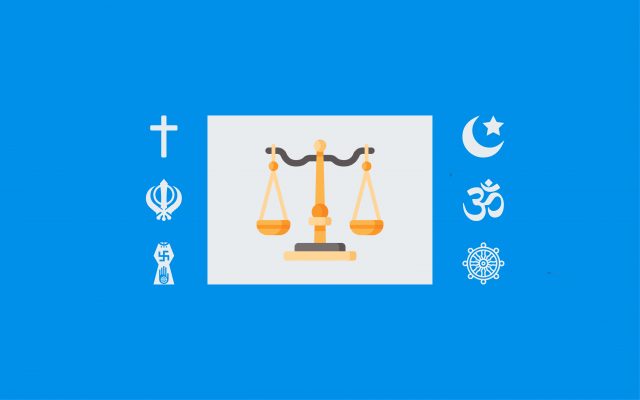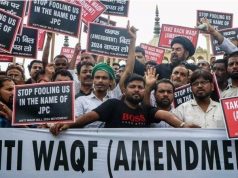Introduction
In Indian politics, the Uniform Civil Code (UCC) has long been a divisive topic. It refers to a body of legislation that aims to supersede the personal laws of various religious organisations with a unified body of civil legislation that handles issues like marriage, divorce, inheritance, and adoption. The rich social, cultural, and political fabric of India is intricately woven with the argument over the UCC. This article explores how the UCC could impact various laws, looking at both the potential it gives for reform and the issues it sparks in the communities.
Historical Context
In the Indian Constitution’s Directive Principles of State Policy, Article 44, the concept of a Uniform Civil Code was first enshrined. The Constitution’s creators wanted a unified judicial system that would advance social justice and gender equality. But they also understood how delicate and difficult it would be to execute such a code in a multiethnic and multireligious nation like India. As a result, the UCC was not made enforceable by law and was instead implemented at the government’s discretion.
Several attempts to enact a Uniform Civil Code have been made throughout India’s history. Prime Minister Jawaharlal Nehru tried hard to implement the UCC in the 1950s, but he encountered fierce opposition from a number of religious organisations and political parties. Thereafter, fearing probable civil upheaval and retaliation, succeeding governments have refrained from taking drastic action over the UCC.
Numerous other governments have debated the UCC problem since independence. However, political factors and the concern for offending religious communities have frequently prevented meaningful action from being taken. India therefore continues to function under different personal laws for different religious communities, including Hindu, Muslim, Christian and others.
The debate of Right and wrong
The UCC’s proponents contend that a unified body of civil laws would advance social justice and gender equality. They contend that establishing distinct personal laws for various religious groups upholds patriarchal traditions and discriminates against women. They are of the opinion that the UCC would guarantee equal rights and opportunities for all citizens, regardless of their religious background.
Additionally, proponents of the UCC contend that it would promote a sense of integration and togetherness among all Indians. India’s secular fabric might be strengthened by establishing a unified civil code that would transcend religious differences. In line with India’s ambitions to be a democratic and inclusive country, the UCC is considered as a step towards a more progressive and modern society.
The views of UCC’s detractors express worries about religious liberty and national identity. They contend that since personal laws are firmly established in religious norms and traditions, they ought to be safeguarded as a matter of fundamental rights. They worry that the adoption of a common code may violate religious freedom and cause animosity between different religious groups.
Potential social upheaval and political retribution are further worries. Any attempt to apply the UCC could spark demonstrations and pushback from various religious organisations because it has historically been a politically touchy subject. Political parties are hesitant to take a strong stance on the UCC because it would harm their chances of winning elections, especially those representing religious minorities.
The Impact of UCC on Hindu Laws
Hindu personal laws are a body of religious rules that Govern things like adoption, divorce, and the right to inherit. These laws have historically come under fire for maintaining gender inequality and discrimination against women. For instance, women were not granted equal inheritance rights under traditional Hindu law, and they also received unequal treatment when it came to marriage and divorce. By establishing equal rights for men and women under a single civil code, the UCC seeks to remedy these inequalities.
The area of marriage and divorce is one of the key areas where the UCC could significantly alter Hindu law. Hindu marriages currently follow traditional ceremonies and practises that differ between sects and groups. The UCC aims to provide a standard, unified marriage law that guarantees equal rights and defence for both spouses, regardless of gender. It might also streamline the divorce procedure, easing the pressure on the justice system and encouraging amicable agreements.
A special chance to advance gender equality in Hindu society is provided by the UCC. The UCC can help women exercise their rights and question patriarchal norms by giving them equal rights in terms of inheritance, property, and marriage. Furthermore, the UCC can deal with the dowry and child marriage problems that still impact a lot of Hindu women.
Case Study: Prakash and Others v. Phulavati and Others[1]
The Indian Supreme Court upheld gender equality in respect of inheritance under Hindu personal law in a landmark decision in 2016. The issue concerned how Section 6 of the Hindu Succession Act, which addresses daughters’ rights to ancestors’ property, should be interpreted. No matter if they were born prior to or following the 2005 legislation reform, the court ruled that daughters have an equal claim to inherited property. The promotion of gender equality in Hindu inheritance laws was advanced by this ruling.
Despite the advantages, there are obstacles and opposition to the UCC’s implementation within the framework of Hindu law. The maintenance of cultural and religious identity has been mentioned as one of the primary issues. The varied cultural practises and traditions of many populations, including Hindus, are said to be in risk of being diluted by a uniform civil code, according to critics.
The UCC may weaken the authority of religious organisations and traditions, which is another concern among certain conservative Hindu groups. They contend that, as has been the case for many years, Hindu law should be left to the discretion of religious authorities.
The Impact of UCC on The Muslim laws
Muslim personal laws, based on Islamic Sharia, regulate issues like marriage, divorce, inheritance, and maintenance among Muslims in India. Critics have expressed concern about gender imbalance in Muslim personal laws, notably in relation to matters like polygamy, unilateral divorce (talaq-e-bid’ah), and uneven inheritance rights for women.
Study of the case Shayara Bano v. Union of India[2]
The practise of triple talaq was deemed unlawful and a violation of the fundamental rights of women by the Supreme Court of India in 2017. The quick triple talaq custom, which permitted Muslim husbands to divorce their wives by saying the word “talaq” three times, was abolished as a result of the landmark Shayara Bano case ruling. The court’s decision was viewed as a major step towards gender justice and women’s emancipation under Muslim personal law.
The application of the UCC in the framework of Muslim legislation presents difficulties and problems, notwithstanding the possibility of beneficial modification. The UCC’s potential to erode the Muslim community’s religious and cultural identity is one of their key points of contention. Many Muslims see personal rules as a fundamental component of their faith and worry that a single civil code could infringe on their rituals and practises.
Another issue is the possibility that the UCC will be used to single out and demonise the Muslim population. It is crucial to prevent the UCC from being used to discriminate against any religion minority or restrict their freedom to practise their faith in a multiethnic and multicultural community like India.
The Muslim Women (Protection of Rights on Marriage) Act, 2019
Muslim Women (Protection of Rights on Marriage) Act, often known as the Triple Talaq Bill, was passed by the Indian government in 2019. Instant triple talaq was made illegal, and husbands who continued to employ this kind of divorce were subject to punishment. While the law sought to shield Muslim women from arbitrary divorces, some Muslims criticised it because they believed it interfered with their religious practices.
Conclusion
It has been a difficult and contentious process to adopt the Uniform Civil Code (UCC) in India, and it has drawn a lot of criticism from different religious groups. With the UCC, various religious communities’ personal laws are intended to be replaced by a single body of laws that govern civil issues including marriage, divorce, inheritance, and property rights. However, proponents contend that the UCC is necessary for creating a cohesive and fair legal system that supports gender equality, social cohesion, and the fundamentals of a secular democracy. Despite these convincing justifications, a number of religious organisations have opposed them, expressing worries about potential intrusions on their religious freedoms and customs.
The road to fully adopting the UCC has been obstructed by this opposition, which has sparked contentious discussions. Although it requires a careful balancing act between safeguarding individual rights and conserving the country’s distinctive cultural fabric, the pursuit of a unified civil code still represents an important step towards building a just and harmonious society. In order to navigate the intricacies of UCC implementation as India moves towards a more inclusive legislative framework, meaningful conversation and sensitivity to the concerns of all stakeholders would be crucial.
In conclusion many scholars think that UCC cannot be implemented in a nation like India, where religion is the centre of everything and to implement UCC is impossible.
References
[1] (2016) 2 SCC 36
[2] (2017) 9 SCC 1






